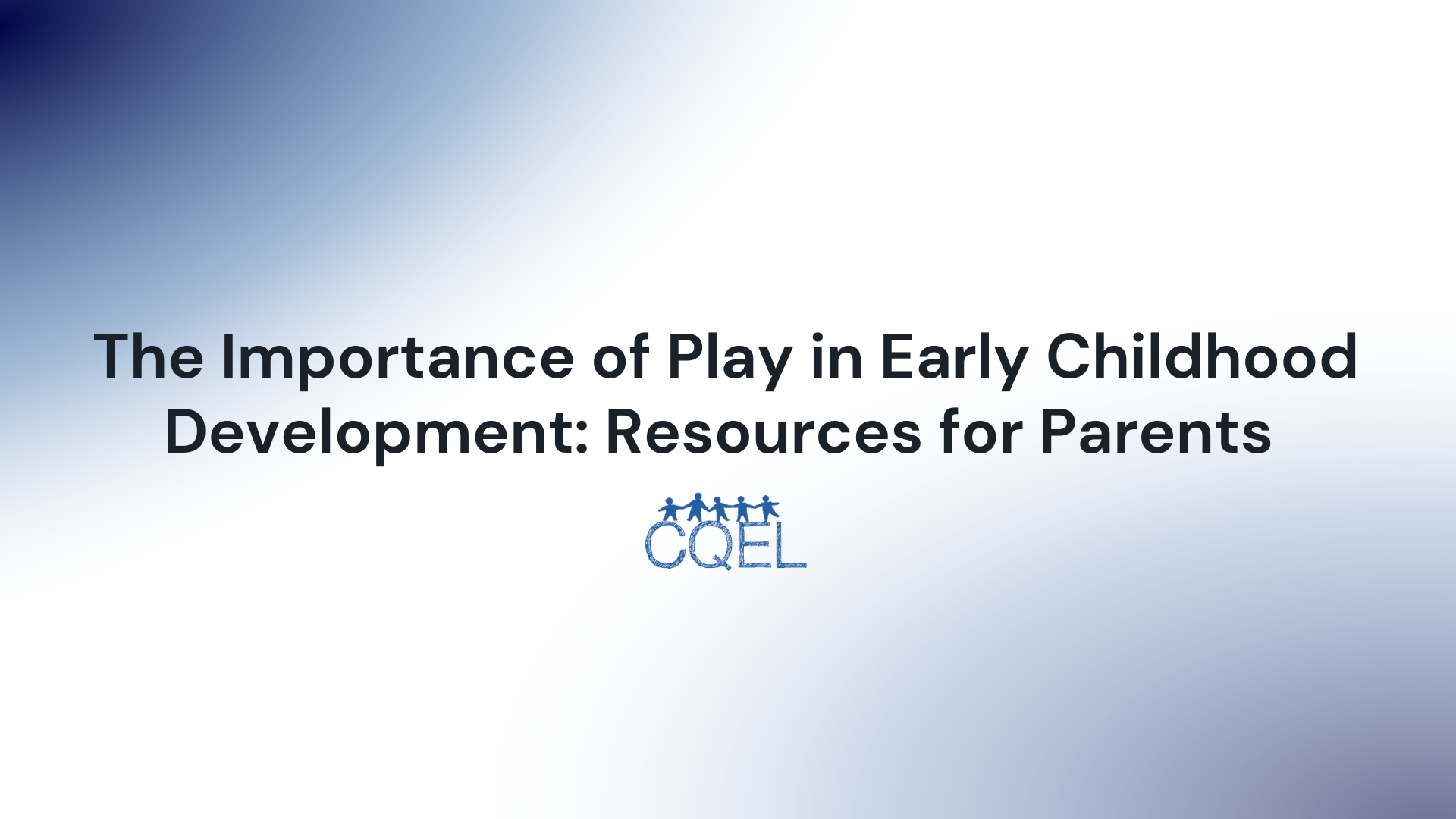The Importance of Play in Early Childhood Development: Resources for Parents
Play helps children develop their cognitive skills, such as problem-solving and critical thinking. It also helps them develop their social and emotional skills, such as communication and cooperation.

Why is play so important for early childhood development?
Play is essential for early childhood development because it helps children learn and grow in a variety of ways. Play helps children develop their cognitive skills, such as problem-solving and critical thinking. It also helps them develop their social and emotional skills, such as communication and cooperation.
Here are some of the benefits of play for early childhood development:
- Cognitive development: Play helps children learn and remember new information. It also helps them develop their problem-solving and critical-thinking skills.
- Social and emotional development: Play helps children learn how to interact with others and how to manage their emotions. It also helps them develop empathy and compassion for others.
- Physical development: Play helps children develop their gross and fine motor skills. It also helps them develop their coordination and balance.
- Creative development: Play helps children develop their creativity and imagination.
What can teachers do to help parents understand the importance of play?
Teachers can help parents understand the importance of play by providing them with resources and information. Here are some ideas:
- Send home newsletters or articles about the importance of play.
- Host parent workshops or webinars on the topic of play.
- Create a play library where parents can borrow toys and games for their children.
- Set up play spaces in the classroom where parents can bring their children to play.
Here are some resources that teachers can give to parents to help them understand and support their children's play:
- The National Association for the Education of Young Children (NAEYC) has a number of resources on the play, including articles, blog posts, and webinars.
- The American Academy of Pediatrics (AAP) has a number of resources on play, including articles, fact sheets, and videos.
- The National Association of Early Childhood Education Directors (NAEYCD) has a number of resources on play, including articles, blog posts, and webinars.
- Zero to Three has a number of resources on play, including articles, fact sheets, and videos.
Research to support claims:
A study published in the journal Pediatrics found that children who play more often have better cognitive skills and social-emotional development than children who play less often.
A study published in the journal Child Development found that children who play creatively have better problem-solving skills and are more likely to succeed in school.
A study published in the journal Early Childhood Research Quarterly found that children who play outside more often have better physical fitness and are less likely to be overweight or obese.
Practical advice and solutions:
Parents can support their children's play by providing them with a variety of toys and materials to play with.
Parents can also set aside time each day for unstructured play. This is the time when children can play freely and without any rules.
Parents can also join in their children's play. This is a great way to bond with children and show them that play is important.
Personal experience:
As a parent, I have seen firsthand the benefits of play for my own children. My children love to play and are always learning and growing through their play. I am grateful for the importance of play in early childhood development.
Play is essential for early childhood development. Parents can support their children's play by providing them with a variety of toys and materials to play with, setting aside time each day for unstructured play, and joining in their children's play. By providing parents with resources and information about the importance of play, teachers can help children have a happy and healthy childhood.
